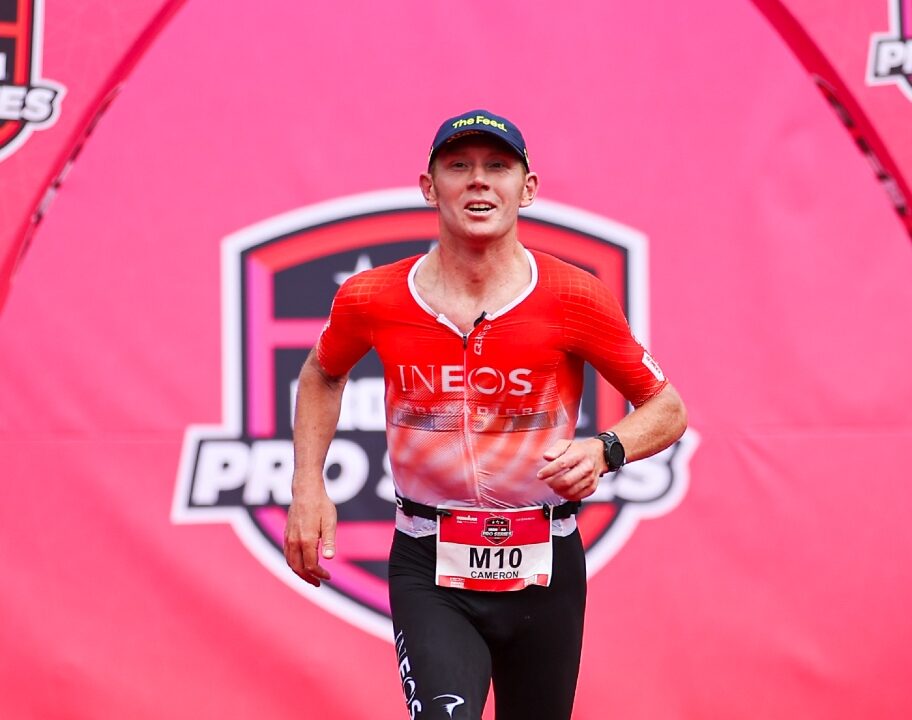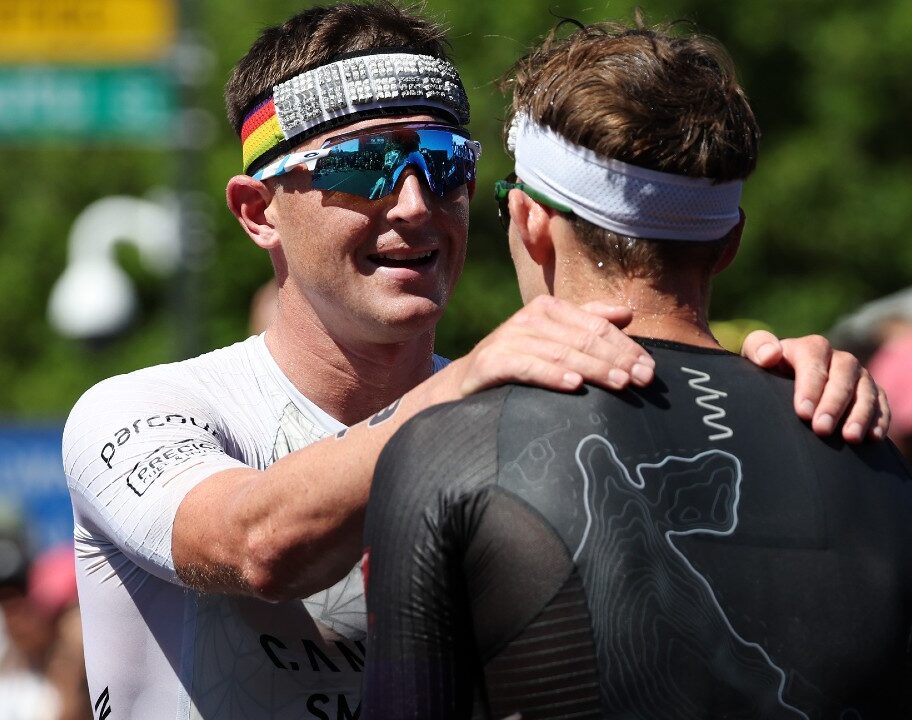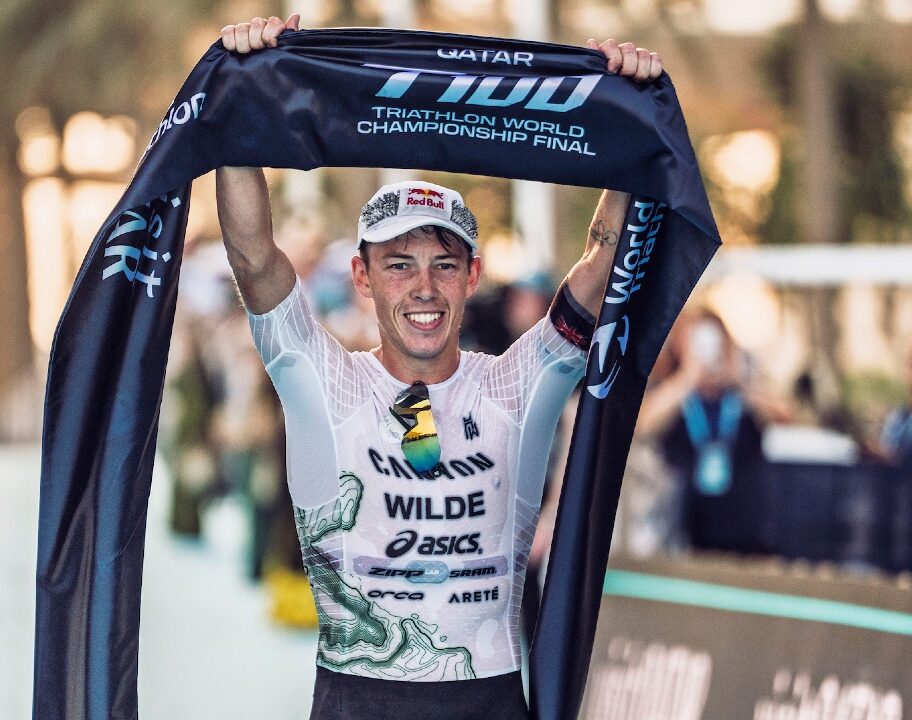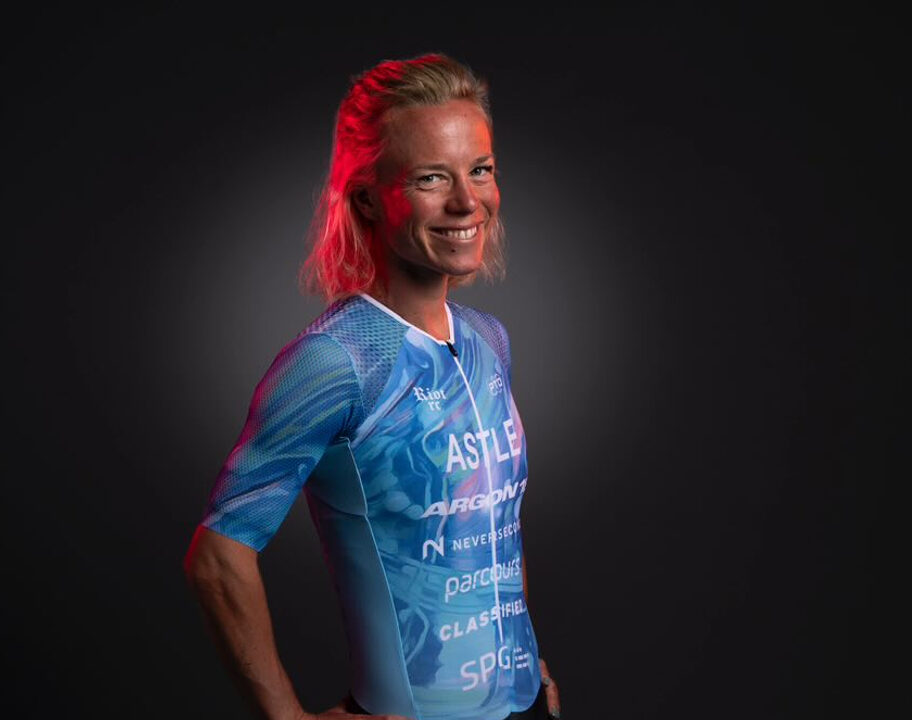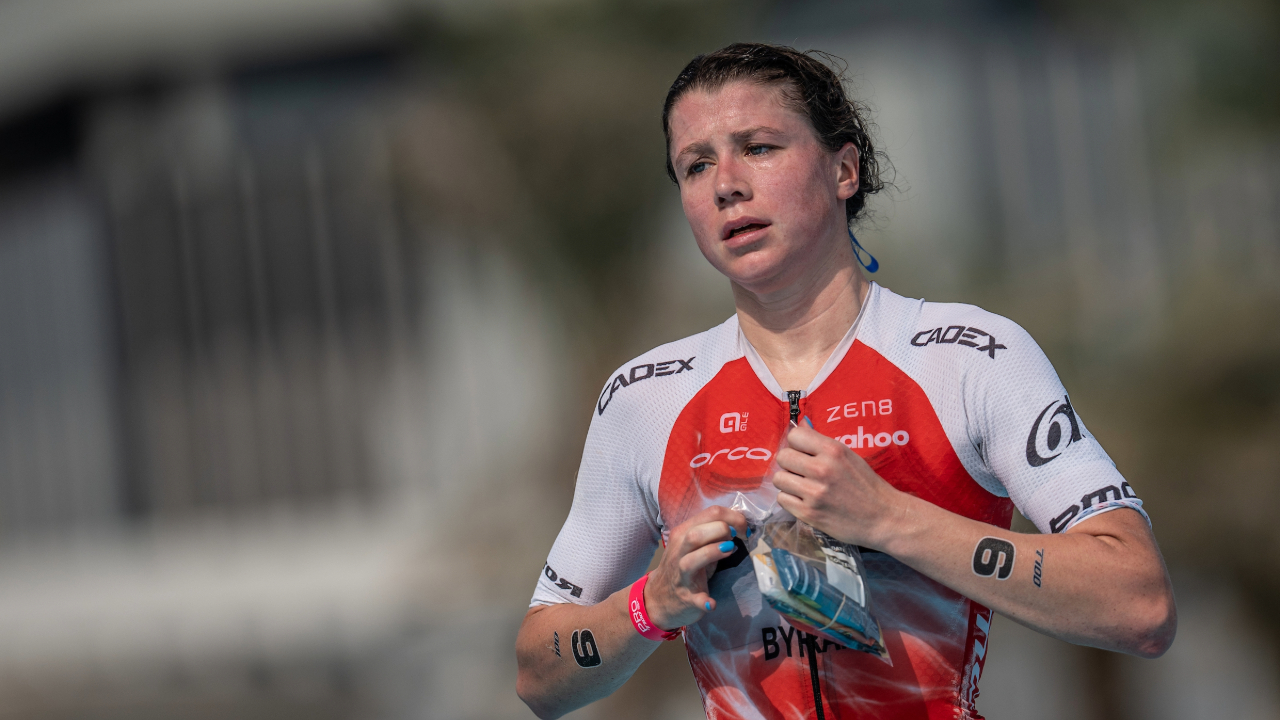Reigning T100 World Champion Marten Van Riel has posted a second and more detailed statement following the dramatic lap-count controversy which wrecked the men’s race at Dubai T100 at the weekend, expressing both “extreme disappointment” and a desire for the sport to “learn and improve together”.
Belgian star Van Riel has been one of the PTO/T100’s staunchest supporters and most successful athletes since the series launched, winning the men’s title in brilliant fashion last season when he raced it both before and after the Olympic Games in Paris last season.
It was in Dubai around 12 months ago where he clinched the crown – but what unfolded there on Saturday could hardly have been more contrasting.
He was in a front group of three late on the bike, along with runaway 2025 series leader Hayden Wilde and Mathis Margirier. That trio though would end up doing an extra 8km lap before things went from bad to worse when most of the field finished the run a lap early.
The exact reasons for both situations has been a topic of hot debate since then – and Van Riel delivered what must have been a devastating critique for the PTO shortly afterwards which you can read here.
But a few days on and Van Riel said on Instagram that the weekend’s events left him “deeply frustrated” – not only by the race-deciding mistakes on the bike leg, but also by inconsistencies in how he feels the run situation was handled.
He opened his statement by reaffirming his support for the PTO/T100 project, noting the effort that goes into staging the races: “I have always tried to support PTO/T100 however I could. I have done everything that was asked of me, and I am proud to be the 2024 T100 World Champion.”
But he said the turmoil he felt after Dubai “only shows how much I care and how much value I place in these races.”
‘No bell lap, no counter, nobody directing us’
The key moment in Van Riel’s race came towards what should have been the end of that bike leg.
He says he started unclipping his shoes to prepare for T2, briefly losing contact with Wilde and Margirier. At that point, he says the markers athletes normally rely on simply weren’t there: “There was no bell lap, no lap counter, only 76km on my Garmin, and no one flagging us into T2 or pointing us in the right direction.”
Believing he still had one lap to go – the bike distance should have been 80km – and seeing Wilde, Margirier and both lead motorbikes continue – he followed them.
Had he turned into T2 at that point and been wrong, it would have meant “an immediate DQ”, he said.
“No effort was made during that final lap to stop or redirect us, even though we were far in front and there was plenty of time to correct the mistake.”
Van Riel accepts he ultimately bears responsibility for counting the laps, but argued that on a technical eight-lap bike circuit, “proper guidance from the organisation is essential in a professional race where prize money and a world title are on the line.”
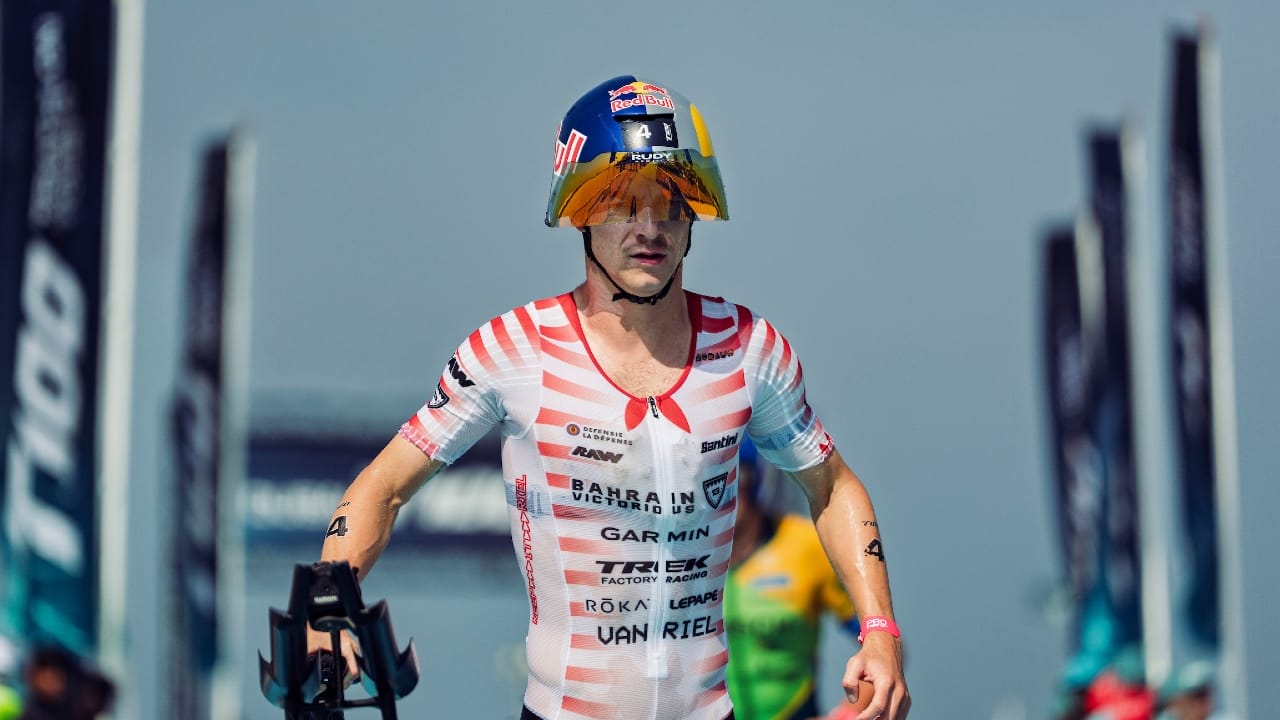
Why the run chaos made things harder to accept
If the bike issue had been the only controversy, Van Riel says he might have processed it differently. But another miscount occurred later – this time on the run, where all bar four athletes completed seven laps instead of eight.
This, he argued, highlighted an inconsistency. “For the run, T100 said it was the fault of the electronic counter and shifted the responsibility away from the athletes. In our incident they placed the responsibility solely on us.”
The PTO’s statement afterwards explained: “Due to a technical issue with the lap counting board and timing, the official result for the Dubai T100 Men’s race was determined after the 7th lap, which was the last known timing and follows World Triathlon guidelines.”
One thing to note here is the word “guidelines” as opposed to “rules” because what happened afterwards was that the athletes were gathered together and allowed to collectively determine the fairest outcome for the run mistake. The 7th lap time was the verdict but another clear option was to DQ all bar the four athletes to complete eight run laps. Morgan Pearson would have emerged the winner either way but Gregory Barnaby, Jason West and especially Jake Birtwhistle – who was placed 17th rather than fourth – were impacted for their sporting decision.
“It feels odd that we don’t either involve the athletes in both cases or follow the rulebook in both cases,” said Van Riel.
He stressed he fully supported the group decision not to disqualify 13 athletes on the run – but wished the same collaborative process had been offered for the bike error.
Shifting calendars also an issue
Van Riel also revealed the Dubai result had broader consequences for his 2025 campaign.
He entered the season expecting to compete in seven or eight T100 races, but changing dates and locations meant he has only managed four so far. The best four scores – plus the grand finale in Qatar count – so with 13th rather than a likely top three in Dubai, the incident has effectively ended his podium ambitions.
Lake Las Vegas T100 was cancelled and rescheduled for Wollongong in Australia while other changes have also made life tricky for both pros and age groupers alike.
And Van Riel admitted: “If I had known this updated calendar at the start of the year, I most likely would not have signed the contract.”
‘I hope we keep improving the sport together’
Despite the frustration, Van Riel’s message ended with a constructive tone as he concluded: “Mistakes were made by both athletes and the organisation.
“I hope that by sharing my experience, we can continue learning and improving the sport together.”
Van Riel and many other athletes have made their feelings known and between them they cover the full spectrum of emotions, with all of them united in wanting the T100 to thrive.
For the PTO and T100 series, Dubai represents both a learning opportunity and a test of credibility. Athlete trust – especially from its reigning World Champion – is crucial both now and going forward to 2026 and hopefully beyond.
The ball now sits squarely with the PTO as the season moves to the grand finale in Qatar and we have asked them for a detailed response to Van Riel’s key points and a number of questions of our own.








